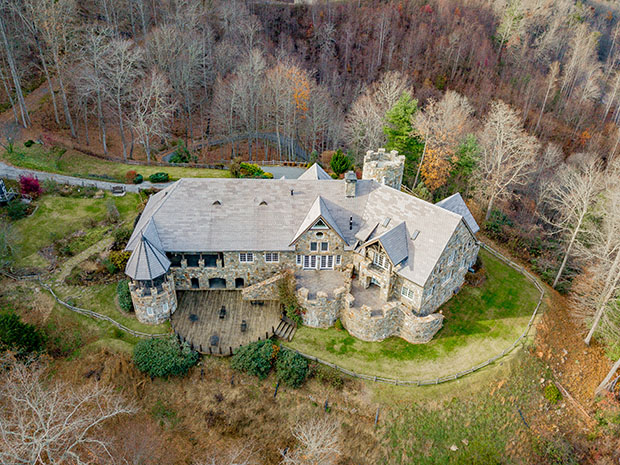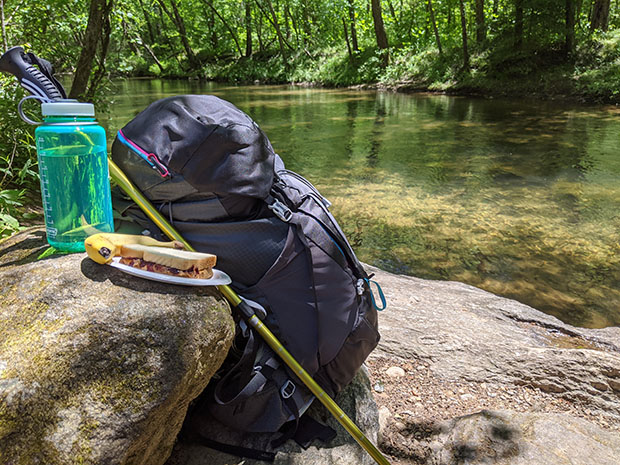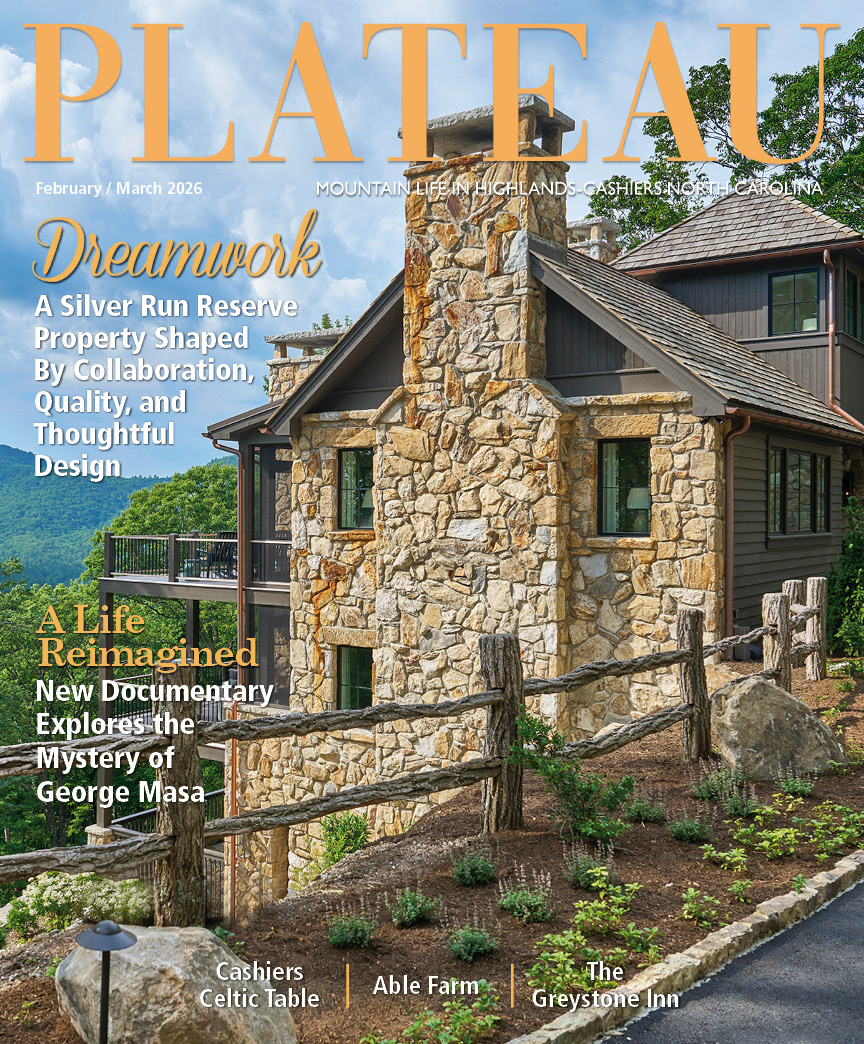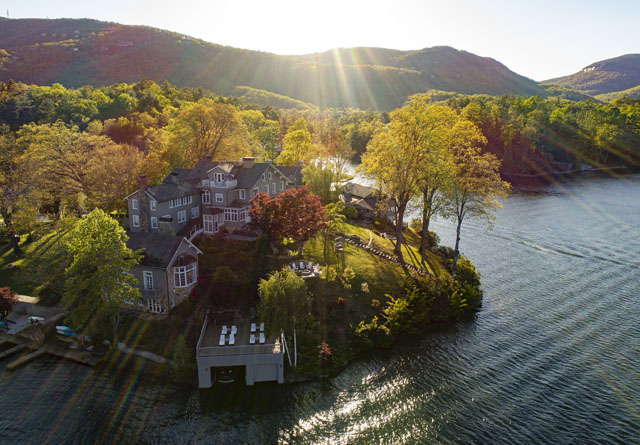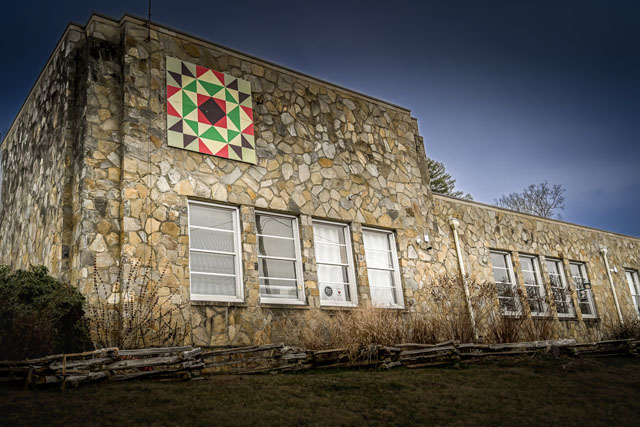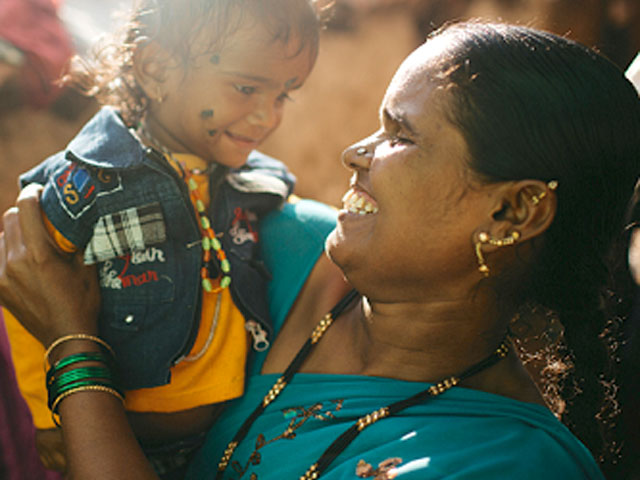Stronger Together
02 Jun 2020
Caring connects us, even when we are apart
By KAT FORD
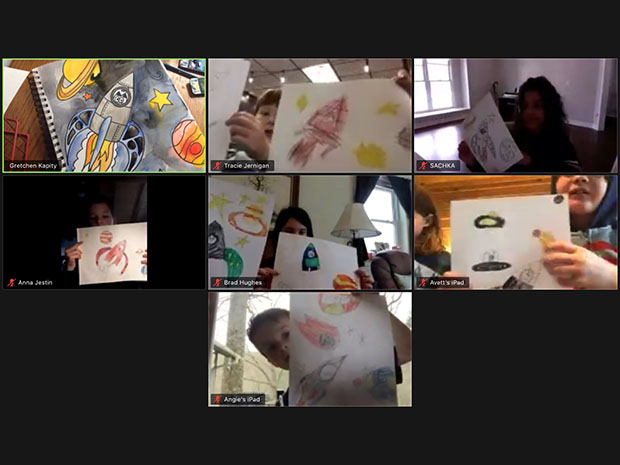
There are narratives so intrinsically human that they can be found in civilizations throughout the world. The parable of the long spoons, for one, is in the folklore of multiple cultures. The story begins at a large table. Utensils are long enough to reach the meal but too long for diners to feed themselves. By relying only on their own ability, they are isolated. Upon realizing they can serve each other, all are nourished. The moral of the story is that we are stronger together.
When the unthinkable happened and the world as we knew it paused, every man seemingly became an island. But islands, we are not. It took just a short moment for us to realize that what we thought to be water was only fog. We were still just as connected as ever, involved in mankind.
Being vigilant was a task to which we were all called. Children were asked to study remotely at home. Businesses were asked to close their doors. Employees completed familiar work through unfamiliar processes. Visitors and second home residents were asked to carefully consider traveling and quarantine. Then, as a community, a state, a nation and a global society, we were all tasked with staying home. We all knew the consequences if we did, but we also knew the consequences if we didn't. I protect you; you protect me.
Some acted early. A week before being required to do so, Old Edwards Inn made a historic decision to close their doors. "We are a family company— which includes our employees, guests and all of our close friends in this community— and we asked ourselves what should we do for our family? We had also touched base with several colleagues in the industry who were struggling with the same decisions and realized everyone was looking to each other for guidance. In the end, for us it simply came down to doing the right thing. A week after we closed, the local mandate came out that would have required the closing. Our employees continued to be paid in full as we navigated our way through the uncertain times. We encouraged them to stay home, stay safe and be part of the solution," said Old Edwards Inn in a statement provided to Plateau Magazine.
In a late April blog post, the Highlands-Cashiers Hospital outlined steps that had been taken over the past weeks assuring residents of the plateau that the hospital was prepared and had been working with sister hospitals, local municipalities and the health department for weeks. "Even before a national emergency was declared, we had been hardening our plans to assure we were ready to meet the needs of our community," said Tom Neal, CEO of Highlands-Cashiers Hospital. Neal held community tele-forums as early as mid-March to answer questions. He continued his commitment to providing transparency with the first edition of the HCH Pulse e-newsletter on April 30th.
While staying at home helped to flatten the curve, it also helped to lessen the stress on our medical community and first responders. Emergencies, including heart attacks and strokes, don't stop during pandemics. At the Glenville-Cashiers Rescue Squad, where around 1,000 calls are received in a normal year, COVID-19 required new precautions to protect patients and staff. Working with the health department and dispatch, they created a plan for segregating ambulance staff and first responders.
During Easter weekend, we discovered that severe storms and falling trees don't stop during pandemics either, a reminder of how quickly a situation can escalate as many were without electricity, some with damaged property. First responders often put their own lives in danger to save others; a situation made even more difficult while trying to social distance. Again, we were reminded of this in early May when a member of the Glenville-Cashiers Rescue Squad was lost in the line of duty.
Outside of the medical community, we learned of many other things that don't stop during pandemics. Businesses planning for an increase in revenue that comes with the plateau's summer tourist season faced the necessity of cutting costs and applying for loans. Families faced hunger. The plateau wept for her people.
But on the Highlands-Cashiers Plateau, the moment between water and fog happened quickly. We have been utilizing the parable of the long spoons for many years. We are not an island, we are a mountain, and strong foundations don't easily crack. We know that we are stronger together, which is why the threads that weave the fabric of our community are tight-knit. Organizations at all levels were able to act quickly because the groundwork was already in place. To quote Nat Turner, Public Affairs Officer for the Glenville-Cashiers Rescue Squad, "this is a new virus, but not a new plan." As the plateau wept, her people readied their long spoons.
In Highlands, the web of nonprofits, businesses, and civic leaders rallied to action. "Highlands has a strong network of community nonprofit organizations that have responded to the COVID-19 pandemic. Our food pantries and churches have stepped up assistance to residents facing food insecurity. The Highlands Emergency Council has increased their services, while the Highlands Chamber of Commerce quickly created a new volunteer program called Neighbors Helping Neighbors," said Mayor Patrick Taylor.
Through Neighbors Helping Neighbors, the Highlands Chamber of Commerce developed a master list of community services and is recruiting individuals to list their talents to help. With the strain that staying at home places on daily life, especially for people at high-risk, this group of volunteers is helping with everything from pharmacy pickup and delivery to simple home repairs and remote computer help. "Our goal in developing NHN is to help those in need and provide that assistance safely. It's as simple as that. A few months ago, no one thought we would be where we are, but we are here, and caring for each other is of utmost importance," said Kaye McHan, Executive Director of the Highlands Chamber of Commerce.
For anyone already benefiting from the plateau's rich nonprofit and business network, social media feeds buzzed with enriching content for quarantine minds. The Highlands Biological Station created a virtual learning center, Yoga Highlands took their classes online, and the Literacy Council launched a reading series on YouTube. Restaurants posted menus and photos of takeout options for those of us longing for our favorite cuisine. The Bascom: A Center For The Visual Arts launched several types of virtual content, including offering their newest exhibitions via video tour. In searching for new ways to implement planned programming, like many nonprofits and local businesses, The Bascom found a promising silver lining.
"The Bascom had scheduled a series of STEM modules in partnership with Macon County schools for this spring, a program that was interrupted by the school closings. We quickly realized that we could create a version of the program utilizing mobile devices. The program was well received and became part of the distance learning curriculum for students in the STEM program in April. As a result, The Bascom has decided to focus more attention in the future on virtual education programs. This crisis has revealed areas of need where nonprofits can serve in the future," said Billy Love, Director of Education and Outreach at The Bascom.
Across the plateau, students, parents, teachers and staff adjusted to a new way of learning overnight. Virtual education requires more than just programming. Laptops, Wi-Fi, digital applications and platforms all became top of mind for educators and families. Platforms such as Zoom, a popular collaboration tool, were used to connect teachers and students. "I am filled with gratitude by the inspiring response of our students, families, faculty, and community members in rising to the challenge of this situation. We've all had to find a new balance and sense of normal. It has not been easy. But, as we've seen again and again over the last two months, these challenges have also inspired innovation and creativity, and revealed the true strength of our community and the Seven Virtues that anchor us at Summit," said Kurt Pusch, Head of School at Summit Charter School.
In Cashiers, volunteer organization Vision Cashiers (VC) called for the development of a community readiness plan in early March. A group of community leaders, including members of the medical industry, local schools, nonprofits, and business leaders, met via phone conference weekly to effectively connect and communicate. Such meetings created committees that sent out two letters, one drafting language for POA leaders to send out of town community members, anxious to learn more about what was happening in their home away from home. A later letter was released to Cashiers at large, offering a sentiment of unity and vigilance. VC also created a committee to provide snacks to local medical professionals and a way for local philanthropic groups to donate money to the Cashiers Emergency Food Collaborative.
"I continue to be moved by the generosity and caring of the Cashiers community, including many of our seasonal residents. The level of collaboration exhibited during this time is quite impressive!" said Irv Welling, President of Vision Cashiers. Those with boots on the ground were not the only ones concerned. As seasonal residents learned of the community need in a home to which they'd yet to return, donor dollars poured in and interstate committee meetings were conducted virtually.
The Cashiers Emergency Food Collaborative began when two separate restaurants, Slabtown Pizza and The Library Kitchen & Bar, mentioned to the Boys and Girls Club of the Plateau (BGCP) that shutdown left them with food surpluses. Within 24 hours, food that was no longer feeding tables at restaurants began to feed families facing food insecurity. With the help of an app already in use, BGCP was able to quickly text families to identify need the Sunday before schools closed, feeding them by Monday. Alternating days with Fishes and Loaves Food Pantry, this initiative fed families dinner. The Jackson County Public Schools school bus meal delivery program served breakfast and lunch. As the collaborative grew, sponsors chipped in to help restaurants fit the bill, making sure that funding dollars were working double-time. Philanthropy dollars given to feed families were used to pay restaurants to cook meals, pumping vital funds back into Cashiers' local businesses. It was here that the ability to donate through Vision Cashiers became so crucial. Money going to the food collaborative was not going towards funding BGCP, an imperative distinction. By mid-May, the list of restaurants participating also included Whiteside Brewing Co., Mica's, The Orchard Restaurant, Subway, and Chile Loco. Over $55k to support the fund had been donated by the Church of the Good Shepherd, Wade Hampton Donor Advised Fund, Colony Club at High Hampton, and Cedar Creek Club Fund as well as by many individual community members.
"When asked to find a new way to serve our children, our full-time program staff said 'yes' and provided a solution literally overnight. Spencer Copen, Vivian Weatherby, and Cameron Ward have been the heart, soul, brains, and brawn of this program," said Josh Helms, BGCP Executive Director.
The attitude of saying 'yes' was echoed in nonprofits across the plateau as staff members who had spent months planning programming switched gears to better serve. "What I am seeing is that our nonprofits, like everyone else, are adapting and evolving. Our mission remains, and we are working harder than ever. We need the support of the community so that we can continue our part in maintaining the fabric of our community," said Julie Schott, Director of Development at the Highlands-Cashiers Land Trust. Schott brings up an important point; our nonprofits were able to act quickly due to structures that were already in place- much like BGCP already had the infrastructure of a texting app that could reach parents of children possibly facing food insecurity.
For some of the plateau's nonprofits, best serving the community meant canceling beloved summer programming and postponing desperately needed charitable events and galas. During quarantine, The Blue Ridge Free Dental Clinic's small team of four front line professionals treated 82 patients in-clinic, performed 292 emergency procedures, and conducted 26 teledentistry conferences at no cost to the patient. That is 108 patients who might have otherwise sought treatment at one of our emergency departments. Doing their part to reduce the burden on the medical community also meant postponing their annual spring fundraiser, delaying over $50k in budgeted income during a time when patients are still in need.
In early April, the Highlands Playhouse announced its decision to cancel plans for the 2020 season. In mid-May, the Highlands-Cashiers Chamber Music Festival announced that they would do the same. In public letters, both organizations emphasized a responsibility to protect patrons, staff and the community. Likewise, both seasoned organizations spoke with promise, creating new ways to inspire and entertain. "The good news is- THIS TOO SHALL PASS! We are already planning for a truly blockbuster 40th anniversary season in 2021…and it is going to be one nonstop party all summer long," said The Highlands-Cashiers Chamber Music Festival in their letter to the plateau.
Local nonprofits are not the only ones with an eye on the future. The plateau's small businesses are looking towards both the coming season and 2021. Advocates for small business, both chambers are working overtime with government, industry and health professionals to assist and lighten the load. Businesses are working tirelessly to implement new procedures and welcome back their clients with socially distanced arms. This means new logistics, new marketing, long days and late nights. "We understand this is a chaotic time for all and we will work through it together. The Chamber will serve as the Cashiers area's strongest business advocate to ensure a successful transition through this challenging time and into a prosperous economic recovery across the plateau," said Stephanie Edwards, Executive Director of the Cashiers Area Chamber of Commerce.
As the plateau continues to navigate the unfamiliar waters that a global pandemic has delivered onto our doorstep, we rest assured in remembering that no man is an island. Going forward, we will find new ways to protect each other, utilizing best personal practices in COVID-19 related safety and doing our part to follow state and local health guidelines. We will find new ways to lift each other up, supporting local businesses and nonprofits. We will find new ways to nourish each other, physically, mentally, spiritually, civically, and economically. We are a community with long spoons. Strong spoons. Good spoons. And we have proven time and again that we know how to use them.

